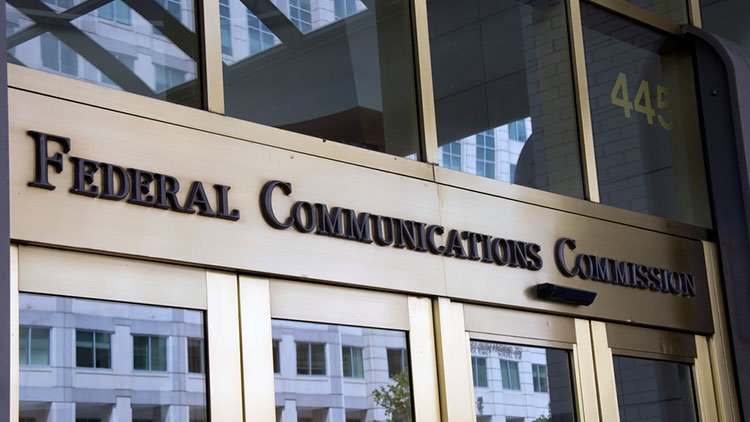FCC Auction's Biggest TV Station Payout: $304 Million

The smarter way to stay on top of broadcasting and cable industry. Sign up below
You are now subscribed
Your newsletter sign-up was successful
A total of 175 TV stations got payouts for giving up spectrum, and 50 wireless bidders—including Comcast/NBCU and Dish—got that spectrum, with the largest single TV station payout $304 million. The largest payout for a noncommercial station was $194 million. One of the biggest names--as in call signs--to win its bid to give up spectrum was WNBC-TV New York, though it will be sharing spectrum and remaining on the air, Comcast/NBCU signaled to the FCC
That is according to the broadcast incentive auction public notice (PN) that was released Thursday by the FCC.
Almost a thousand TV stations—957—will have to move to new channels in the post-auction repack.
The PN essentially was the opening of a floodgate, releasing reams of data on which stations were paid what and where, which companies got the spectrum broadcasters gave up and where, and where and when TV stations will be moving in the post-auction repack.
A list of all 175 winners and their payouts from the FCC is available here and of the 50 winning wireless bidders here. Trinity's WWTO Chicago was the $304 million winner and New Jersey Public TV was the big noncom winner. But there were others. Three dozen stations won $100 million each.
Most TV stations who got payments to give up their spectrum—145 of the 175 winning bidders elected to give up their spectrum. Of those, 133, 0r 92%--have said they planned to strike spectrum-sharing deals and continue in the business, though that was an indication to the FCC and is not binding. Of the remaining 30 winners, 29 agreed to move from a UHF to a VHF, with one station moving from a high V to a low V.
NBC flagship WNBC New York was one of the winning stations ($214 million), according to the FCC winning bidder sheet, but NBC told the FCC it planned to strike a sharing agreement to keep its programming on the air.
The smarter way to stay on top of broadcasting and cable industry. Sign up below
Among the wireless bidders, T-Mobile was the biggest bidder at $8 billion, with DISH second at $6.2 billion, and Comcast at $1.7 billion, and AT&T $910 million. Verizon did not bid.
The FCC also announced new channel assignments for the 957 non-winning stations that must be repacked—change channels—to clear the spectrum for wireless winners. The first group of station moves will begin Nov. 30, 2018.
“The conclusion of the world’s first incentive auction is a major milestone in the FCC’s long history as steward of the nation’s airwaves," said FCC chairman Ajit Pai. "Consumers are the real beneficiaries, as broadcasters invest new resources in programming and service, and additional wireless spectrum opens the way to greater competition and innovation in the mobile broadband marketplace.”
The FCC did not list the top station payouts by group, but by licensee, which might or might not signal who the ultimate parent was. But OTA was expected to be among them, that was the group formed by computer mogul Michael Dell, presumably in order to put that spectrum in the auction. OTA comprises independent stations in major markets, which were in prime position to enter and cash in on the auction. More than a half-dozen OTA stations were winning bidders, according to the FCC data.
That notice also now triggers the start of the 39-month post-auction TV station repack.
The FCC had already announced that broadcasters got $10,054,676,822 for their 84 MHz of spectrum and forward auction bidders had paid a total $19,768,437,378 for the 70 MHz that was left after guard bands were subtracted as buffers between channels and homes for unlicensed devices. But this was the first time the FCC provided the details on bidders and prices in both auctions. Forward auction bidders had not been allowed to share their winning totals, while broadcasters were and some did.
While the FCC revealed the TV station winners Thursday, it will not make public the losers for a couple of years, which is why the FCC isn't revealing how many stations actually bid, only those that won.
There were 2,200 stations that could have participated—commercial and noncommercial full-powers, plus Class A low powers—but that number was reduced to 1,800 because there were stations that the FCC knew going in they didn't need, for instance in smaller markets where they could get the spectrum out of what was laying fallow.
"The broadcasters showed up and, except for T-Mo, the carriers did not," said Preston Padden, former executive director of the Expanding Opportunities for Broadcasters Coalition, which represented stations interested in the auction. "[Incentive Auction Task Force chair] Gary Epstein deserves an award for 5 years of public service,"
The auction was authorized by Congress in 2012, began in early 2016 and ended only two weeks ago.
“Congratulations to all the winners of the FCC’s 600 MHz spectrum auction: consumers, broadcasters and wireless companies," said CTIA VP of regulatory affairs Scott Bergmann. "Today marks the culmination of years of hard work from Congress, the FCC and all stakeholders, and CTIA is proud to have played a key role in these efforts. We look forward to getting to work on a successful, smooth and timely repacking and transition that will unlock spectrum for a new round of mobile innovation and investment and enable a more connected life for all Americans.”
Contributing editor John Eggerton has been an editor and/or writer on media regulation, legislation and policy for over four decades, including covering the FCC, FTC, Congress, the major media trade associations, and the federal courts. In addition to Multichannel News and Broadcasting + Cable, his work has appeared in Radio World, TV Technology, TV Fax, This Week in Consumer Electronics, Variety and the Encyclopedia Britannica.

